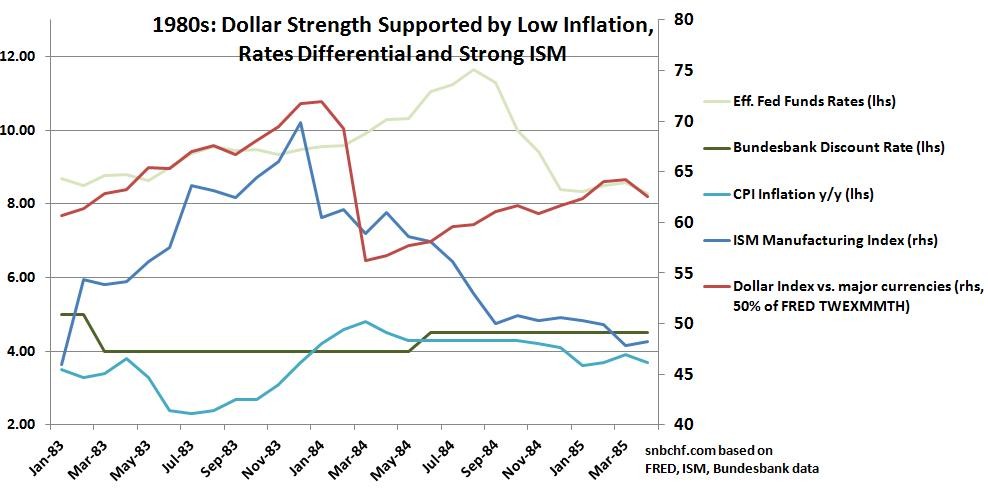Volcker Says MoneyMarket Funds Weaken System
Post on: 3 Июнь, 2015 No Comment

Paul Volcker, head of Obamas Economic Advisory Board
Aug. 25 (Bloomberg) — Paul Volcker. the former Federal Reserve chairman who is an adviser to President Barack Obama, said money-market mutual funds undermine the strength of the U.S. financial system and should be regulated more like banks.
“Banks remain the functioning heart of the financial system, and they are protected and regulated,” Volcker said in a telephone interview last week from his New York office. “To the extent they have competitors that have different ground rules, kind of free-riders in my view, weakens the financial system.”
Money-market mutual funds, which first appeared in 1971, have developed into a $3.5 trillion pool of cash outside of the regulated banking industry that provides short-term funding to thousands of companies and financial institutions at rates below conventional loans. Their pivotal role in the economy was highlighted in September when the collapse of the $62.5 billion Reserve Primary Fund sparked a run by investors that in turn froze the commercial-paper market and threatened to cut off thousands of borrowers.
“They are an absolutely huge source of cash for high-quality borrowers,” Anthony J. Carfang. a partner at Treasury Strategies Inc. a Chicago financial-consulting firm, said in an interview. “They’re highly efficient and very transparent, reducing the cost of capital.”
Money funds are the largest buyer of commercial paper, a type of debt that matures within nine months that is a key source of short-term financing for businesses. The funds held $578.7 billion, or 41 percent, of outstanding commercial paper as of March 31, according to the most recent data published by the Fed. They are also buyers of bank-issued securities such as certificates of deposits and repurchase agreements.
Borrowing Rates
Commercial banks had $1.46 trillion in outstanding commercial and industrial loans as of Aug. 12, according to the Fed.
The annual yield on three-month commercial paper sold by nonfinancial companies was 0.26 percent for the week ended Aug. 14, according to the Fed. Carfang estimated companies would pay 0.5 percentage points above the London Interbank Offered Rate, or about 0.92 percent, if they had to replace three-month commercial paper with bank loans.
Money-market funds can provide cheaper financing because they aren’t bound by regulations such as federal insurance requirements on deposits and reserves on loans that increase costs for banks, Volcker, 81, said. The funds, which are overseen by the U.S. Securities and Exchange Commission, should submit to the same “regulatory burden” as banks or give up accounting flexibility that lets them maintain a stable $1 share price, a chief attraction to investors, he said.
Vocal Advocate
Volcker has been a vocal advocate of imposing bank-like requirements on money funds, to the dismay of asset managers as they wait for the Obama administration to issue new rules for the industry.
His proposals “would eliminate money funds as we know them,” Paul Schott Stevens. head of the Investment Company Institute. a mutual-fund industry trade group in Washington, said in March.
Fidelity Investments, based in Boston, is the largest manager of U.S. money-market mutual funds, with $506.3 billion as of July 31, according to Crane Data LLC, a research firm in Westborough, Massachusetts. Fidelity and other independent asset managers, including New York-based BlackRock Inc. and Vanguard Group Inc. of Valley Forge, Pennsylvania, oversee about half of the industry’s assets. The rest is managed by fund companies owned by banks, led by JPMorgan Chase & Co. which has $390.3 billion in money-fund assets.
Government Report Due
Money-fund managers dodged the possibility of radical change on June 24 when the SEC proposed rules changes largely in line with industry recommendations.
Another hurdle approaches on Sept. 15 when the President’s Working Group on Financial Markets. a government advisory body, is set to issue a report on the industry. The group was directed by the Obama administration in June to consider whether money-market funds should be forced to abandon the practice of maintaining a $1 net asset value, or NAV, or be required to set up “emergency liquidity facilities.”
Volcker said he isn’t involved directly with the President’s Working Group and wouldn’t speculate on what regulatory proposals may result.
“I don’t know. I’m sure the money-market funds have a very powerful lobbying machine,” he said.
Officials of government organizations participating in the working group, including the SEC, the Treasury and the Federal Reserve, declined to comment.
Group of Thirty
Volcker first aired some of his views in January when the Group of Thirty, a nongovernmental think tank that he chaired, recommended that funds offering bank-like services should be required to reorganize as special purpose banks “with appropriate prudential regulation and supervision, government insurance and access to central bank lender-of-last-resort facilities.”
Volcker, who stood by the recommendations last week, said he hadn’t personally drafted the section on money-market funds.

“In my vision of the new financial system, you obviously want to protect banks and have strong banks, and I don’t think they should be put at a competitive disadvantage vis-a-vis money-market funds,” he said.
Stevens and industry executives said money funds have proved to be a safe investment for companies and individuals while providing a reliable source of short-term funding to companies.
Long Enmity
“Paul Volcker has a 30-year hatred of money funds and he is woefully behind the times,” Federated Investors Inc. Executive Vice President Eugene F. Maloney. whose Pittsburgh-based company is the third-largest money-fund manager, said in a telephone interview.
Volcker said his main concern stands “apart from the degree to which the funds themselves can create a problem if and when they fail.” He said he’s not worried by the idea of dismantling the biggest lender to commercial-paper borrowers.
“They do funnel money to the commercial-paper market but they are just funneling money that would otherwise go to the banks, and it’s the banks’ business to make loans to those people,” Volcker said.
Volcker is chairman of the Economic Recovery Advisory Board. a body created by Obama in February to recommend responses to the economic and financial crises. He was Fed chairman from 1979 to 1987 and has been credited with taming inflation during that period.
Stable NAV
Unlike bond funds that mark holdings at current market prices, money-market funds value their investments according to their expected payoff at maturity, allowing them to maintain a steady $1 NAV, unless a holding defaults. Returns on investments are credited to customers and distributed monthly as cash or new shares.
The stable $1 NAV has served as one of the funds’ main draws for investors that include companies, pension funds and individuals. The $1 share price has also been labeled the greatest weakness for money funds, and a threat to the wider money markets they serve as lenders.
Andrew Donohue. director of the SEC unit that oversees money managers, said in an April speech that the stable $1 share price encourages investors to flee money funds at the first sign of trouble.
To contact the editor responsible for this story: Larry Edelman at ledelman3@bloomberg.net.














